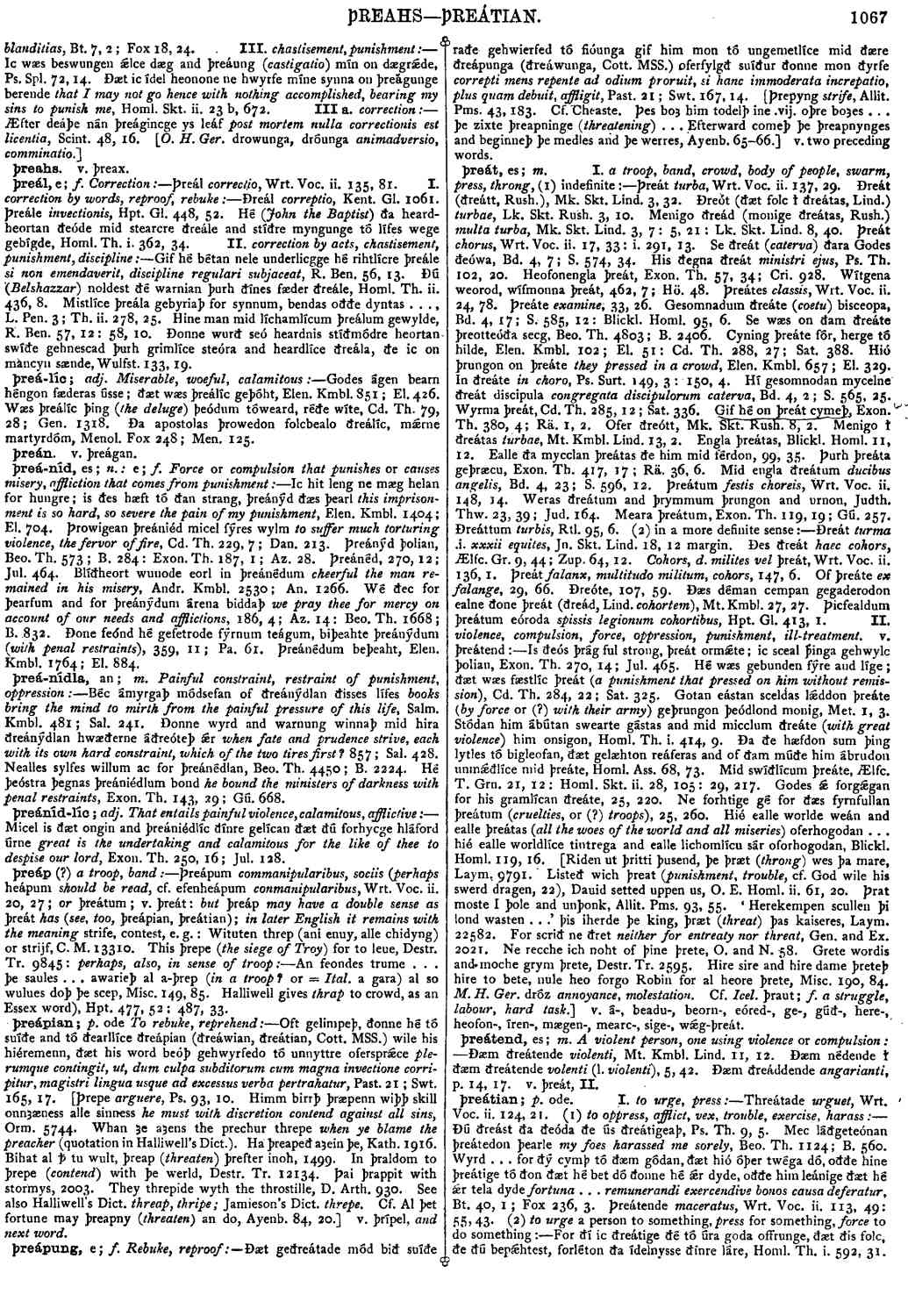þreá-níd
- noun [ feminineneuter ]
-
Ic hit leng ne mæg helan for hungre; is ðes hæft tó ðan strang, þreánýd ðæs þearl
this imprisonment is so hard, so severe the pain of my punishment,
- Elen. Kmbl. 1404 ;
- El. 704.
-
Þrowigean þreániéd micel fýres wylm
to suffer much torturing violence, the fervor of fire,
- Cd. Th. 229, 7 ;
- Dan. 213.
-
Þreánýd þolian,
- Beo. Th. 573 ;
- B. 284: Exon. Th. 187, 1 ;
- Az. 28.
-
Þreánéd,
- 270, 12 ;
- Jul. 464.
-
Blíðheort wunode eorl in þreánédum
cheerful the man remained in his misery,
- Andr. Kmbl. 2530 ;
- An. 1266.
-
Wé ðec for þearfum and for þreánýdum árena biddaþ
we pray thee for mercy on account of our needs and afflictions,
- 186, 4 ;
- Az. 14: Beo. Th. 1668 ;
- B. 832.
-
Ðone feónd hé gefetrode fýrnum teágum, biþeahte þreánýdum
( with penal restraints ),
- 359, 11 ;
- Pa. 61.
-
Þreánédum beþeaht,
- Elen. Kmbl. 1764 ;
- El. 884.
Bosworth, Joseph. “þreá-níd.” In An Anglo-Saxon Dictionary Online, edited by Thomas Northcote Toller, Christ Sean, and Ondřej Tichy. Prague: Faculty of Arts, Charles University, 2014. https://bosworthtoller.com/32008.
Checked: 1